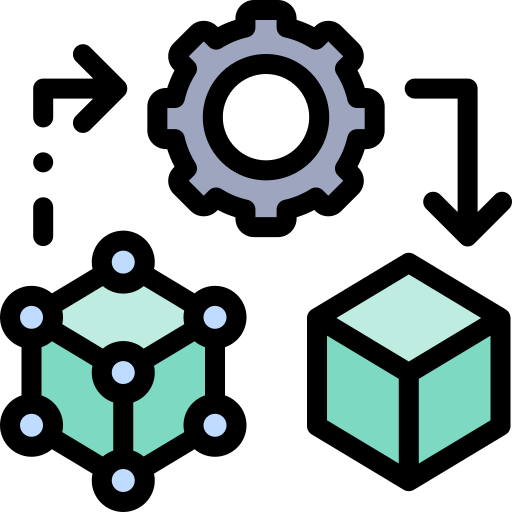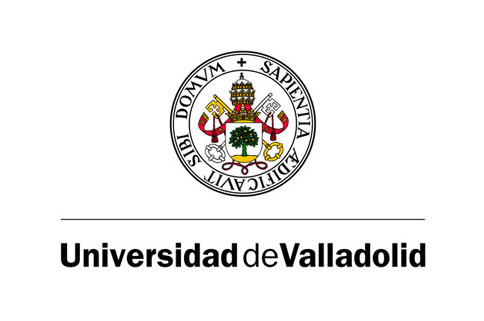PARTNERS
WHO MAKES UP THE PROJECT SPANDAM?
SPANDAM is based on a consortium balanced and complementary, actors, leaders with a great experience in the areas of specialization of SPANDAM. Each partner brings their experience and knowledge to the creation of the tool, in key aspects such as: demography, depopulation, indicators of population, public policy, modeling and software development.
EXPERTISE OF THE PARTNER
CARTIF is a centre of applied research, a leader in R & D activities and technology transfer. Created in 1994, is formed by 175 researchers. The mission of CARTIF is to offer innovative solutions to companies to improve their processes, systems and products, improving their competitiveness and creating new business opportunities.
Develops R & D projects, funded directly by companies or public funds through competitive calls for a national and international level. The participation of CARTIF in international activities is embodied in 62 international projects in course: 37 projects H2020, 11 LIFE projects and 9 Interreg (SUDOE and POCTEP).
CARTIF is LEADING THE DEVELOPMENT OF SOFTWARE , the design of strategies and plans and the implementation of the models in the cases of study
CARTIF has extensive experience in the development of tools that support the decision-making process to address the social challenges current through different evaluation measures. It is a key actor of SPANDAM by:

KNOWLEDGE
On the methodology for collecting and integrating a large amount of publicly available data, including statistical data in situ of different sectors.

TECHNIQUES AND METHODS
As the modeling SD with software Vensim, to improve the performance of real systems through the definition of advanced algorithms.

PROCEDURES
To deliver information at higher spatial resolution: regionalization statistical integral (downscaling of data) using statistical algorithms.

ASSISTANCE
To the public authorities in the design of policies to support the process of energy transition through the implementation of mitigation and adaptation measures, with a focus on planning integrated.

EXPERTISE OF THE PARTNER
The Centre d'estudis Demogràfics (CED) was established in 1984 by the Generalitat de Catalunya and the Universitat Autònoma de Barcelona (UAB). Currently, the CED is home to 60 people, including researchers, academics, administrative and technical staff, graduate students and academic visitors. The main activities of the CED are in the research, training and dissemination in the field of population studies. CED is located between the 5 major population centres of Europe.
THE CED PROVIDES SPANDAM HIS EXTENSIVE AND PROVEN KNOWLEDGE OF DEMOGRAPHIC
The CED has a tab of its own that contains demographic data, housing and the Spanish labour market at the municipal level and census. Recently, the CED has launched the Explorer “Social”a tool that allows the user to query and download data in the form of geo-referenced, as well as perform interactive maps.

AREAS OF RESEARCH
Areas of research include historical demography; family and fertility; education and labor; health and aging; residential mobility and urban change; internal and international migrations; rural depopulation; forecast and projections of the population.

OWN PROGRAM
The CED has its own doctoral program in Demography and co-organizes and hosts the European Masters in Demography-European School of Doctorate in Demography (EDSD). Dissemination activities include scientific publications, presentations at conferences, outreach activities and publications of general interest.

IEPM
In addition, the CED welcomes the draft european integrated micro-data of the population (IEPM), which provides access to microdata census harmonized more than 16 european countries. It is also one of the partners in the project, InGRID, a research infrastructure that provides resources and services to the scientific community and contributes to the strategy, the european policy for inclusive growth. In addition, the CED collaborates with IPUMS International, which broadcasts microdata census of 85 countries.

PROJECTIONS
The CED has a wide experience in the production of forecasts and projections of the population. Makes population projections for the Catalan government at the municipal level. Has produced projections of population and housing for some countries of Latin America, the Spanish autonomous communities, municipalities and private companies. He also collaborates with the National Institute of Statistics (INE) for the development of official projections of population for Spain.

EXPERTISE OF THE PARTNER
Fresno, The Right Link is a company based in Madrid, that operates at the international level and national social policies, mainly dealing with social services, employment, education, welfare and social protection.
FRESNO PROVIDES SPANDAM HIS EXTENSIVE EXPERIENCE IN PUBLIC POLICY

Main function
Sand especially focused in the areas of poverty, exclusion and vulnerable groups such as older people, people with needs of long-term care, people with disabilities, migrants, ethnic minorities, families in precarious situations, homeless people and other vulnerable groups. The mission of Fresno is to support public and private agencies to provide better services to the people.

PUBLIC POLICY
Fresno has a team of 17 internal experts, together with a network of qualified external experts, highly qualified professionals in different areas: legal, economics, sociology, human rights protection, agricultural engineering, and the arts.

INTERNATIONAL EXPERIENCE
The team has international experience, several of the employees regularly work with the European Commission, the UN and other international agencies, as well as with the OECD and the World Bank. The team covers a variety of languages including English, French, German and Portuguese.

CONTRIBUTION TO THE PROJECT
The role of Fresno includes: participation in the direction and management of the project; contribution to the development of products and solutions with a view to marketing; the connection of the products and final solutions with the needs of the market and your customers and potential customers; and to publicize, disseminate and position products and final solutions in the market and among the potential customers.

EXPERTISE OF THE PARTNER
El grupo de investigación está formado por un equipo que combina el estudio y análisis de la despoblación, sus causas y las políticas adecuadas. Está formado por personas especializadas en el estudio de las políticas públicas que afectan al medio rural.
El grupo es pionero en el análisis de la despoblación y fundó en el año 2000 el Centro de Estudios sobre Despoblación y Desarrollo de Áreas Rurales (CEDDAR) y la revista Ager, Revista de estudios sobre despoblación rural.
The University of zaragoza brings his expertise in public policy of depopulation.

CONSULTANTS
Han realizado importantes labores como consultores de diferentes instituciones. Han elaborado informes sobre el tema para el Justicia de Aragón (2000 y 2017) y han colaborado en la elaboración del Plan Integral de Política Demográfica y de Población del Gobierno de Aragón en el año 2000 y la Directiva Especial de Política Demográfica y de Despoblación en 2016. Miembros del grupo colaboran con el Departamento de Sanidad del Gobierno de Aragón. En 2020-21, dos miembros del grupo formaron parte del comité de expertos que creó la Estrategia Nacional a Largo Plazo del Gobierno de España en “Promover un desarrollo territorial equilibrado, justo y sostenible”. El grupo también ha participado en la elaboración de un índice de carencias socioeconómicas por Área Básica de Salud en Aragón mediante el Censo de Población y Vivienda 2011.

I+D+I
Con respecto a la investigación académica, han analizado la migración, la despoblación y las políticas públicas y estrategias para combatirla. Estos trabajos se han llevado a cabo desde hace muchos años a través de la participación de los tres miembros del equipo en numerosos proyectos de investigación del Plan Nacional de I+D+ y proyectos europeos. Su trabajo ha dado lugar a muchos artículos en revistas académicas de alto impacto.

RESEARCH EXPERIENCE
El grupo posee una sólida cualificación y experiencia investigadora en los ámbitos de la atención a la escuela rural, la voz de los niños, la diversidad, la educación inclusiva, la justicia social y la formación del profesorado, con una perspectiva metodológica fundamentalmente etnográfica.

Methodologies
El grupo también ha desarrollado metodología específicas para analizar la variabilidad geográfica de los indicadores de salud en zonas pequeñas. Asimismo, el grupo ha llevado a cabo la identificación de perfiles de pacientes en función de su patrón de uso de los servicios sanitarios y terapias farmacológicas, requiriendo intervenciones específicas.

EXPERTISE OF THE PARTNER
The University of Salamanca (USAL), founded in 1218, it has 9 campus teachers and administrative staff in Ávila, Zamora, Béjar and Salamanca. It has about 30,000 students in the last few years, and ranked no. 16 among public universities in terms of scientific production.
THE UNIVERSITY OF SALAMANCA, LEADS IN THE AREA OF DEVELOPMENT OF THE INDICATORS FOR THE TOOL SPANDAM

Group m2s
The research group M2S “Labour Market, Migration, Health” is a team of multi-disciplinary research that brings together researchers from various social science disciplines such as demography, economics, and sociology. The main areas of interest of the team M2S are linked to the analysis of labour markets, the dynamics of migration and the health of the population. The path and the results of the team have allowed it to be recognized by the regional government of Castile and Leon as the only Drive on a consolidated Research in Social Sciences from the University of Salamanca.

PROJECTS
In the last 10 years the members of M2S have participated in more than 20 projects of national and international research. The members of the team have been principal investigators for more than 10 projects funded by national and regional institutions. At the same time, the members of the team have participated and are participating in several international projects that address issues of migration, population dynamics and health.

PUBLICATIONS
The team members have published over 60 articles in international journals of high impact as Demographic Research, Population, Population Research and Policy Review, or Socio-economic Review. They have also published several books and chapters in prestigious publishing houses such as Palgrave, MacMillan, Routledge, Springer or Edward Elgar.

JOINT INVESTIGATIONS
We also maintain close ties and collaborations with leading research groups in international and national collaborative research projects and joint publications: The Population Studies Center of the University of Pennsylvania (united States); The Max Planck Institute of Demographic Research in Rostock (Germany) or The Population Center of the University of Princeton (Usa).
Additionally, they have served as experts and advisors to numerous national and international organizations.

EXPERTISE OF THE PARTNER
The Group of Energy, Economy and Dynamics of Systems (GEEDS) is a Group of Recognized Research (GIR) of the University of Valladolid.
The research facilities of the Grape, which include 4 industrial laboratories certified and 19 research institutes.
THE UNIVERSITY OF VALLADOLID IS A KEY ACTOR SPANDAM PROVIDING HIS KNOWLEDGE AND EXPERIENCE IN THE MODELLING

PROJECTS
The Grape manages around 852-funded research projects through public announcements competitive R & D+i (european, national and regional), and approximately 500 contracts and agreements for the transfer of knowledge and technology, for an average value of over 15 million euros yearly.

SIMULATION MODELS
The GEEDS was created in 2008 as a team of interdisciplinary research that integrates researchers from different fields with the aim of analyzing the transformations required to achieve sustainability with a special focus on energy issues, economic and social. To achieve this goal, GEEDS develops simulation models that allow us to analyse the effects of different alternatives and assist in decision making.

MULTIDISCIPLINARITY
Abundant research shows that the transition to sustainability will require deep technical changes, but also economic and social. Therefore, it requires multidisciplinarity to assess the impacts, synergies and tradeoffs of the transition to a socioeconomics sustainable low-carbon. Models GEEDS are developed in Dynamic Systems (Vensim).

MODULES DEPOPULATION
In each of these projects, the group has designed modules of population in which he has worked on its main variables, including migration, and other social variables. The group has published more than 40 relevant publications in the last five years.
